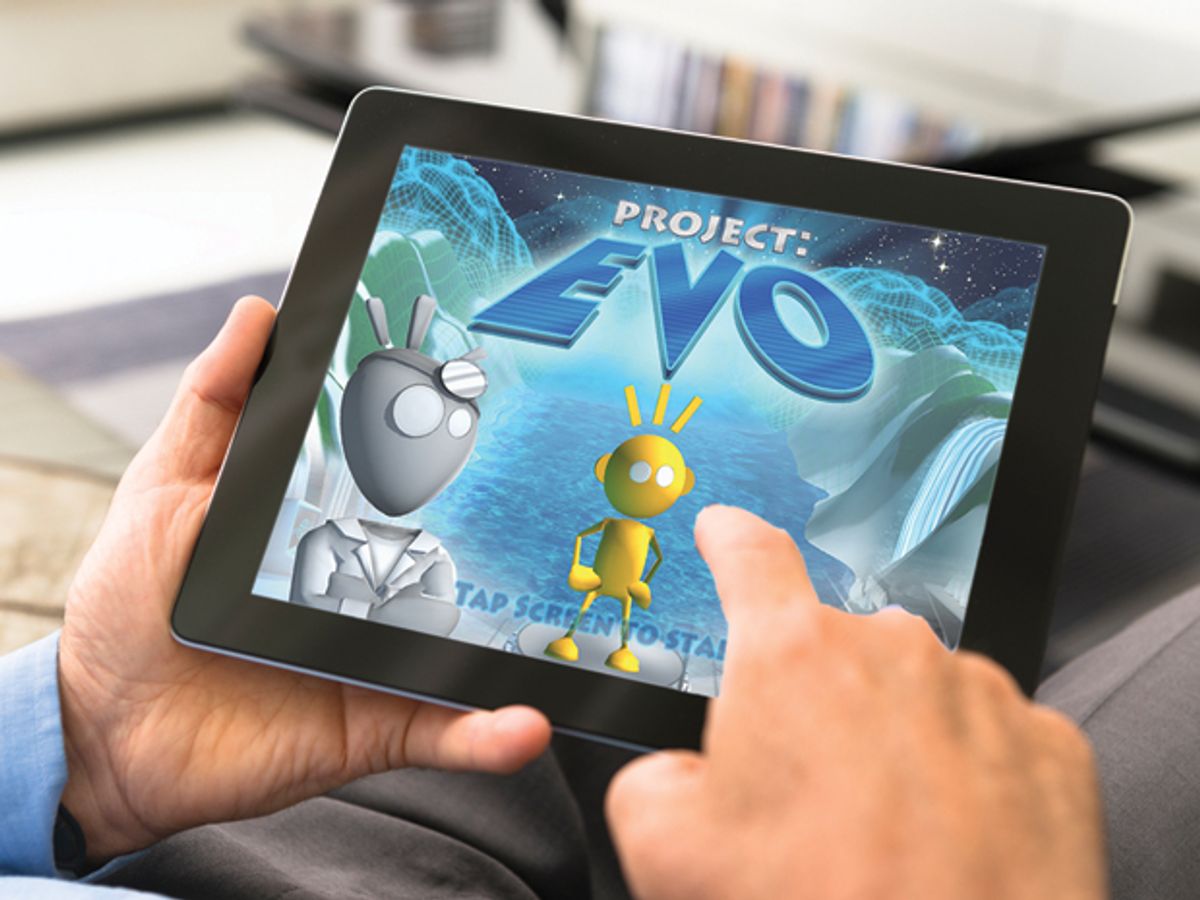Project: Evo is a brightly colored iPad game that doesn’t look different from any app you might use to while away the time. Yet it’s intended for a much more serious endeavor: The game’s creators believe it can be used to both diagnose and ultimately treat mental disorders.
The start-up behind this game is Akili Interactive Labs, and they’ve gotten the attention of the pharmaceutical industry. Pfizer, of New York City, is partnering with Akili on a clinical trial that began in March, which will determine whether Project: Evo can identify people with a high risk for developing Alzheimer’s disease.
Akili Interactive Labs
Founded: December 2011
Headquarters: Boston
Founders: PureTech
Funding: US $7 million
Employees: 5.5
Website: www.akiliinteractive.com
“There would be a lot of utility in detecting patients early,” says Eddie Martucci, Akili’s vice president of R&D. “Then physicians could enroll them in drug trials early and could try other interventions.” Currently, expensive PET scans are used to spot people at risk of Alzheimer’s by estimating the amount of amyloid plaque in their brains. In the clinical trial, researchers will enroll people with high and low amyloid levels to see if the two groups have different degrees of success with Akili’s game. “If we can match amyloid measurements to our game-play results, then you have a quick, easy way to find those patients,” Martucci says.
Users play by tilting the iPad or iPhone to steer a cheerful alien down a river while keeping an eye out for fish or birds and tapping the screen when a specified animal appears. This multitasking is surprisingly challenging, and success is tied to a player’s abilities in what neuroscientists call interference processing.
The game is based on work by Adam Gazzaley, a neuroscientist at the University of California, San Francisco. Gazzaley, one of the cofounders of Akili, has shown that people’s interference processing capacities decline with age. He has also built a rudimentary game called NeuroRacer, says Eric Elenko, the company’s chief business officer. “We’ve taken that underlying science and…prototype, and we’ve created a mobile product that has the look and feel of an entertaining game,” he explains. Akili also built out a back end for the game that harvests data 30 times per second during game play for remote monitoring and analysis.
In addition to the Alzheimer’s study, Akili is conducting clinical trials researching ADHD, autism, and depression. While it may seem unlikely that one game could be used to identify such a broad range of disorders, Martucci explains that interference processing is a key component of executive functioning—essentially, goal-directed behavior and the faculties necessary to reach those goals. “If you’re overcome by interference, if you’re highly distractible, many of your other faculties under executive function start to degrade,” Martucci says. “We’re targeting the weak link in the system.” While the Alzheimer’s study will attempt to identify patients, other clinical trials will determine whether a regimen of game play can provide cognitive benefits.
Akili is one of a dozen high-tech health start-ups nurtured by PureTech, which operates out of a sleek office in downtown Boston and focuses on health-care challenges. Akili hopes to begin seeking approval this year from the U.S. Food and Drug Administration to sell Project: Evo as a medical product. Elenko says such approval would encourage doctors to take the game seriously. “There would be nothing to prevent us from taking it and putting it on the App Store today,” he says, “but we want it to be viewed in the realm of medicine.”
Experts in the booming mobile health market say Akili’s game could provide great cost savings and medical benefits. But Corey Ackerman, president of Happtique, a company based in New York City that’s establishing a certification system for mobile health apps, says the key to success will be establishing Akili’s scientific credibility. “We speak to hospitals and other types of providers and clinicians, and we get asked a lot about the efficacy of apps,” he says. “Doctors are scientists, and they want proof before they do something new and extra.”
This article originally appeared in print as “Akili: Diagnosing Alzheimer’s With a Game.”
